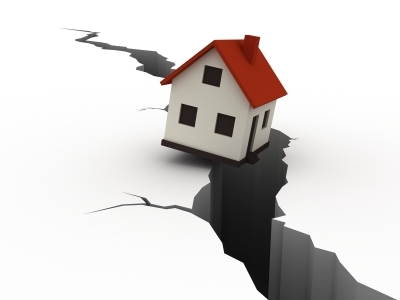
By John Grant
Insurers are rushing assessors to Canterbury to deal with the biggest natural disaster in the history of New Zealand's insurance industry.
It is now the value of reinsurance contracts and the arrangements between insurers and the Earthquake Commission are put to their biggest test.
John Balmforth, CEO of AMI said that they have reinsurance arrangements in place and the cost to their bottom line will be no more than NZ$5 million, the deductible on their reinsurance programme.
So far the Christchurch-based insurer has received over 7,000 claims and the biggest challenge is getting enough qualified and experienced assessors on the ground to cover the work load.
Balmforth wouldn't confirm it but we understand that AMI has the largest domestic market share in Christchurch with around 40% of properties insured by them. This could see them with 100,000 household policies and claims on many of these. AMI has put together a team of 10 assessors, all with either trade experience or training to visit their customers who have received property damage.
Claims are going to take weeks to assess then the task of building needs to start. It will take a long time to work through and resolve all of these claims.
The most difficult aspect of this will be the complex questions of rebuilding badly damaged properties.
Some will not be able to be rebuilt at the same location and therefore the issue of payment for the land will become an issue to be coordinated between the Earthquake Commission, the customer, their lender and the insurer. This will be a complex task with a lot of parties involved in the process.
It will require the Government to lend a hand at how this can be resolved.
'Sharing the losses'
It is also now that the insured remember the value of insurance.
The principals of insurance that date all the way back to 2100BC. It was then that they first felt a need for a guarantee against loss, and who gave them that guarantee. Way back in Babylonian times, around 2100 B.C., the Code of Hammurabi was the first basic insurance policy. This policy was paid by the traders in the form of a loan to guarantee the safe arrival of their goods by caravan. Of course, caravans faced the same kind of perils our transportation industry faces today – like robbery, bad weather and breakdowns.
The concept of insurance is about sharing and spreading losses. In this earthquake the losses suffered by around 100,000 households and probably 50-60,000 businesses will be shared with all of those taking insurance in New Zealand and around the world.
New Zealand is seen as part of the Australasian insurance market and therefore we tend to have events in Australia impact on our cost of buying global reinsurance.
Lumley CEO John Lyon says that on a global scale the costs of the Christchurch Earthquake will not be seen as overly significant. It may be large on our scale ,but not when considered alongside of some of the Hurricanes and storms that impact America and Europe. His company has put a senior executive on the ground in Christchurch to co-ordinate actions.
The last 2 years have not been a great period of time for Australasian insures with floods, storms, fires and now earthquakes adding to the catastrophe reinsurance costs. It will drive up the cost of reinsurance, but will not have a major cost to each household.
What are you seeing? How are the insurers coping? What the issues home and businesses will face?
We welcome your comments below. If you are not already registered, please register to comment
Remember we welcome robust, respectful and insightful debate. We don't welcome abusive or defamatory comments and will de-register those repeatedly making such comments. Our current comment policy is here.